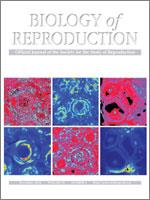Invasive trophoblast from Day 34 horse conceptuses survives in extrauterine sites in allogeneic recipients that are immunologically naive to donor major histocompatibility complex class I antigens. The ectopic trophoblast retains its in utero characteristics, including similar lifespan, physiologic effect of its secreted product (equine chorionic gonadotropin) upon the recipient's ovaries, and induction of host immune responses. Immunologic memory has not been considered previously in this experimental system. We hypothesized that primary exposure to ectopic trophoblast would affect the recipient's immune status such that the survival time of subsequent transplants would be altered. Secondary transplant lifespans could be shortened by destructive memory responses, as has been observed in ectopic trophoblast studies in rodents, or lengthened, as occurs when male skin grafts follow multiple syngeneic pregnancies in mice. Eight mares received two closely spaced trophoblast transplants. Both grafts for each recipient were obtained from conceptuses sired by the same stallion to provide consistency in histocompatibility antigen exposure. Donor stallions were major histocompatibility complex class I homozygotes. Cytotoxic antibody production was tracked to monitor recipients' immune responses to the transplants. Detection of serum equine chorionic gonadotropin was used as a proxy for transplant lifespan. There was no significant difference between the distributions of primary and secondary transplant lifespans, despite evidence of immunologic memory. These data demonstrate that secondary ectopic trophoblast transplants in horses do not experience earlier destruction or prolonged survival following immune priming of recipients. Mechanisms responsible for the eventual demise of the transplants remain unperturbed by secondary immune responses or chronic antigenic exposure.
How to translate text using browser tools
19 October 2016
Ectopic Trophoblast Allografts in the Horse Resist Destruction by Secondary Immune Responses
Margaret M. Brosnahan,
Emily J. Silvela,
Jessica Crumb,
Donald C. Miller,
Hollis N. Erb,
Douglas F. Antczak
ACCESS THE FULL ARTICLE

Biology of Reproduction
Vol. 95 • No. 6
December 2016
Vol. 95 • No. 6
December 2016
equids
immunology
reproductive immunology
Transplantation
trophoblast




